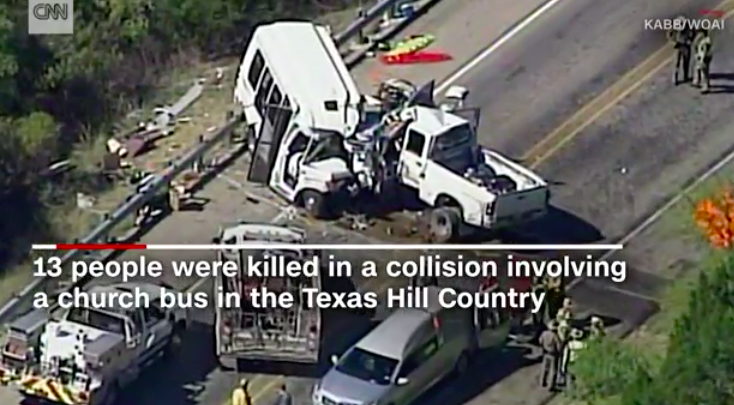By now, everyone knows that driving while distracted by a mobile device is dangerous -- but that doesn't stop people from doing it. Recent data gleaned from drivers' smartphones by the company Zendrive shows that distracted driving is ubiquitous. People with smartphones use them on 88 out of every 100 driving trips.
Nowhere is the culture of permissiveness more apparent, or deadly, than in Texas, where about 3,500 people lose their lives in traffic every year. Texas has not had a single day without a traffic death in more than 15 years. And it is one of just four states that doesn't ban texting and driving.
Recently, a driver killed 13 senior citizens in a church choir bus and admitted at the scene to texting behind the wheel. The Dallas Morning News' Eline de Bruijn reports that the son of one of the victims is pressing the state legislature to finally act:
In addition to seeking $1 million in damages and for Jack Young to be prosecuted to the fullest extent of the law, the suit also urges the Legislature to enact a statewide texting and driving ban, according to the Express News.
The House passed a bill last month that would ban texting and driving. The bill is now in the Senate.
Jody Kuchler, a witness to the crash, told the Express-News that he spoke with Young while he was still pinned in his pickup.
'He said: 'I'm sorry, I'm sorry. I was texting on my phone,'" Kuchler said. "I told him, 'Son, do you know what you just did?' He just kept saying, 'I'm sorry.'"
More recommended reading today: Urban Review STL weighs in on a local debate about whether adding turnstiles can help address public safety problems on St. Louis's Metro system. And Move Forward explains how mobile ticketing can reduce abuse of discounted transit fare programs.




